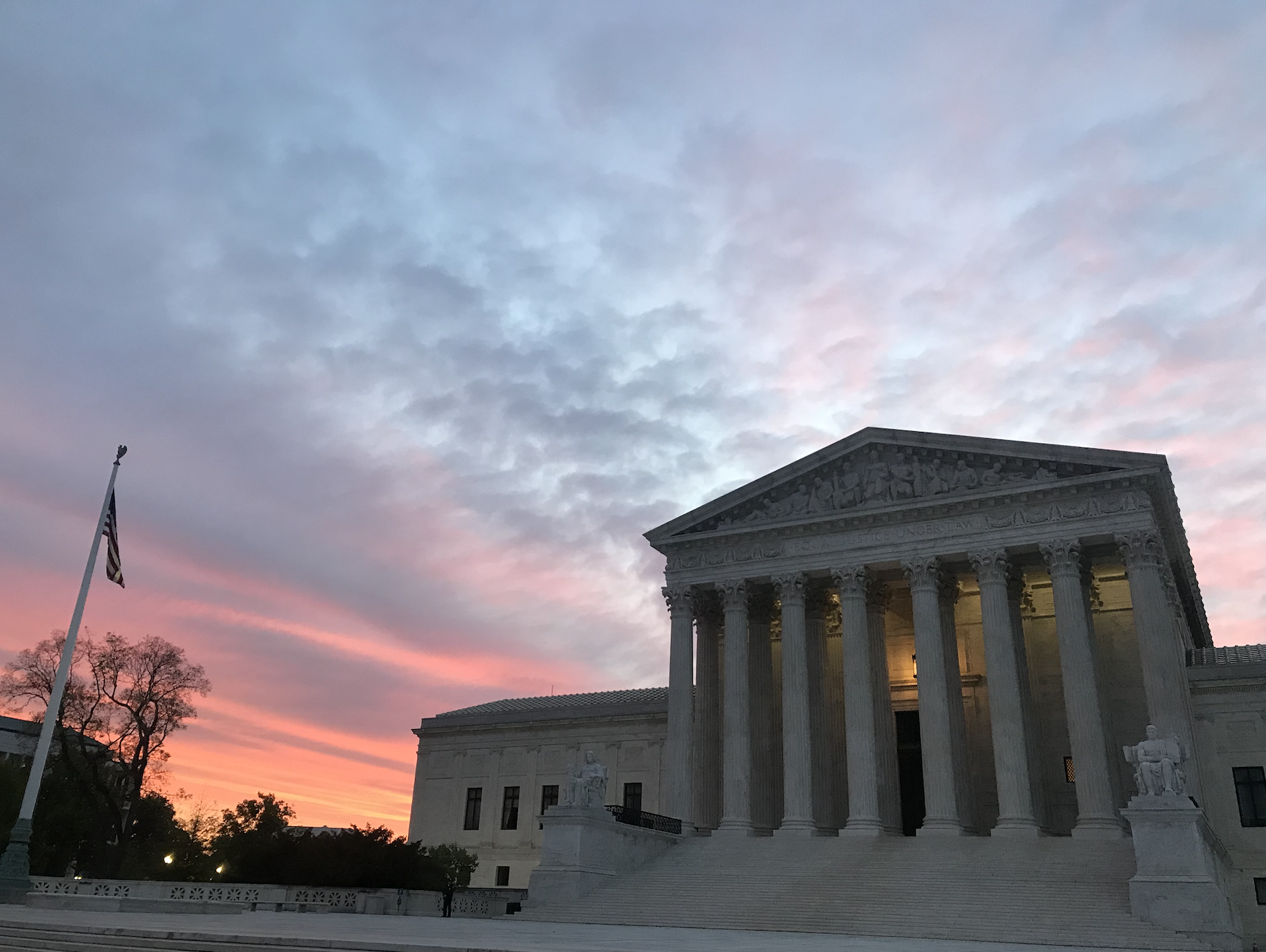Redacted briefs before Supreme Court violate First Amendment

Update: On June 24, the Supreme Court granted National Public Radio and the Reporters Committee’s motion to unseal. Read the Supreme Court order; read more from NPR. View the unredacted briefs.
On June 7, National Public Radio and the Reporters Committee for Freedom of the Press asked the Supreme Court of the United States to unseal significantly redacted legal briefs filed in a case before the court about whether the use of midazolam — a controversial sedative increasingly used in death penalty executions — would violate an inmate’s Eighth Amendment protections against “cruel and unusual punishment.”
On May 29, Alabama death row inmate Christopher Lee Price filed an emergency application in the Supreme Court to stay his execution, arguing that midazolam, the first drug in Alabama’s three-drug protocol, would insufficiently sedate him, causing an unlawfully painful death. At the insistence of the defendants, including the Alabama Department of Corrections, the parties requested permission to file sealed briefs, and provide heavily redacted versions for the public court docket. The Supreme Court granted their request without any analysis regarding the redactions and also denied Price’s request for a stay. He was executed by the state of Alabama the next day, on May 30.
The Alabama Department of Corrections had also sought to keep secret all court records about its lethal injection protocol during earlier phases of the case: In the trial court, Eleventh Circuit Court of Appeals, and the Supreme Court, the corrections department filed briefs entirely under seal and submitted heavily redacted briefs. The redacted information detailed how Alabama enforces the death penalty, as well as evidence about the effectiveness and legality of midazolam. The lower courts permitted these requests for secrecy without performing any analysis of whether the information should be redacted.
Emphasizing the “benefits of public scrutiny in capital cases” and the “long history and tradition of openness” in courts, NPR and the Reporters Committee raise significant concerns about Alabama’s redactions.
“The public has a presumptive right of access to court proceedings and records, and that right applies in appellate courts, including the Supreme Court,” Reporters Committee Legal Director Katie Townsend said. “The court rejected Mr. Price’s request for an emergency stay of his execution to challenge the use of certain lethal injection drugs by the state of Alabama. We’re urging the court to unseal the arguments that were made by Mr. Price and Alabama in this case so that the public can fully understand the basis for the court’s decision.”
Drawing on a trove of case law affirming this presumptive right of access to decisions, arguments and records, the brief argues that these redactions both violate First Amendment protections. And the brief argues the passages must be unsealed not only because of First Amendment concerns, but also because the redactions are inconsistent: Similar expert testimony in other cases is already in the public record.
“Public access serves the important goals of promoting judicial legitimacy and core democratic values, by allowing the public to monitor the courts and understand how they resolve the cases before them,” the brief reads.
This right of access is especially important in capital cases, the brief argues. Because the public was able to access and scrutinize expert testimony in a similar case, Glossip v. Gross, a journalist determined that the state of Oklahoma offered the Court a misleading characterization of a study on the effectiveness of midazolam.
Critics and some experts have voiced concern that midazolam is not sufficiently effective to sedate an inmate before two other drugs, which stop respiration and induce cardiac arrest, are injected. A pathology professor found that men whose executions involved midazolam showed indications of pulmonary edema, a build-up of fluid in the lungs that produces a sensation of drowning. Individuals who have witnessed executions involving midazolam, the brief emphasizes, have reportedly observed the inmates jolting and gasping for breath minutes after they were supposed to be unconscious.
Proponents of the use of midazolam in executions, on the other hand, say that the drug is a “safe and effective” substitute for other lethal injection drugs, according to the brief.
“By allowing Price’s execution to proceed, the court leaves an important and potentially meritorious Eighth Amendment claim unresolved, even though a trial to resolve it is just days away,” Justice Steven Breyer wrote in his May 30 dissent, which referred explicitly to redacted evidence.
View NPR and the Reporters Committee’s motion to intervene and motion to unseal.